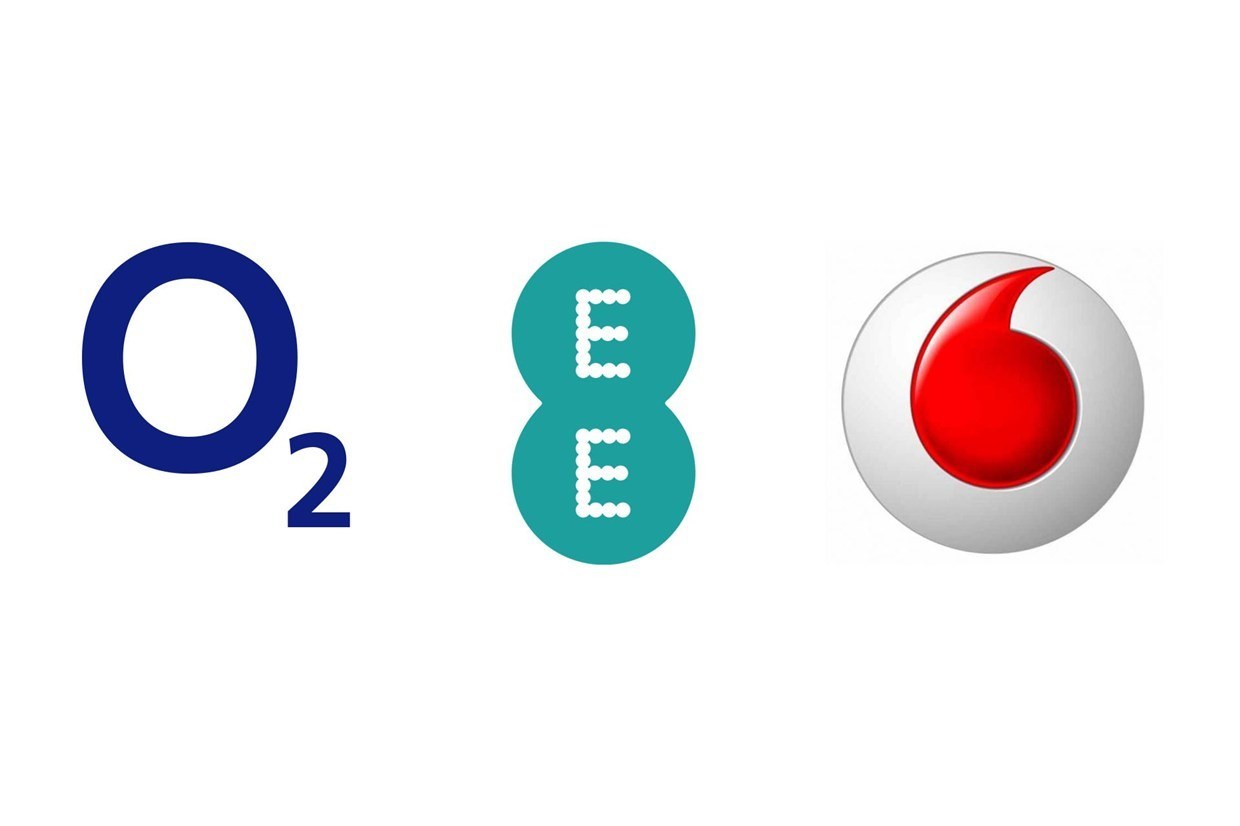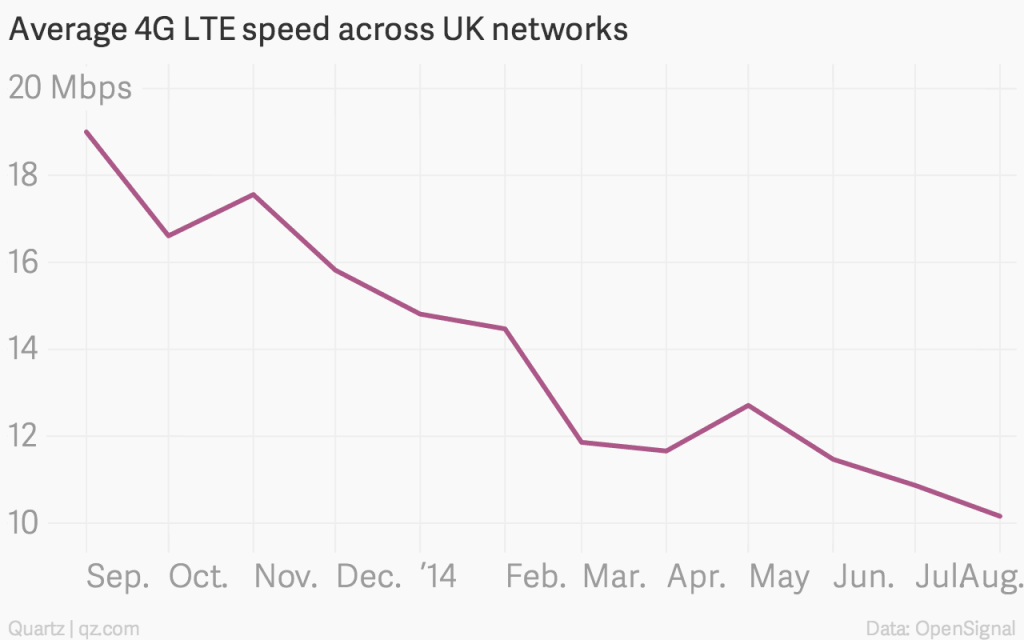Affiliate links on Android Authority may earn us a commission. Learn more.
UK carriers are struggling to provide actual 4G speeds

Mobile phone subscribers in the United Kingdom are struggling to receive their promised 4G LTE speeds. At the start of 2014, over 6 million people in the United Kingdom had access to a 4G LTE network. Unfortunately, as Quartz notes, as more subscribers in the UK joined their wireless carrier’s faster 4G network, the speeds being provided by those 4G networks have been buckling under the increase in users.
According to OpenSignal, a signal measurement firm, the UK wireless carrier O2 has seen the average time connected to their 4G network drop from 50% to 37% in comparison to the period between July and October last year. On the whole, the average speed of 4G connections had fallen from around 19Mbits/sec in September 2013 to just over 10Mbits/sec by August 2014.
This can likely be attributed to people signing up for 4G coverage in spots of the country where the coverage is questionable. But as Quartz notes, why are networks selling expensive 4G plans to people who live in places where coverage is solidified? The only UK mobile carrier with a “decent” 4G signal outside of London is EE and even that is questioned by OpenSignal.

If there is any good news, it is that 3G data speeds have remained fairly steady, despite a much larger number of users. But as PCPro asks, does this mean that 4G speeds will be as slow as 3G speeds by this time next year?
OpenSignal found that the fastest average speeds in the UK were:
- Vodafone had the fastest average 4G speeds of any network with speeds of 13.21Mbits/sec.
- EE had an average speed of 11.78Mbits/sec,
- O2 had an average speed of 10.5Mbits/sec and
- Three had an average speed of 8.95Mbits/sec.
Earlier this year, RootMetrics deemed Vodafone as the worst mobile network in the UK. This likely comes from Vodafone’s lack of 4G coverage in most parts of the UK.
After all of these 4G issues in the UK, I couldn’t help but laugh at a recent article discussing how the UK administration is determined to be in the forefront of ‘5G’, whatever that means.
Then there is EE recently announcing the introduction of their “4G+” network which EE claims will offer double the speeds of EE’s 4G LTE network. Granted, few can access this 4G+ network right now and the likelihood of the network still doubling speeds is questionable as more customers use the faster network.